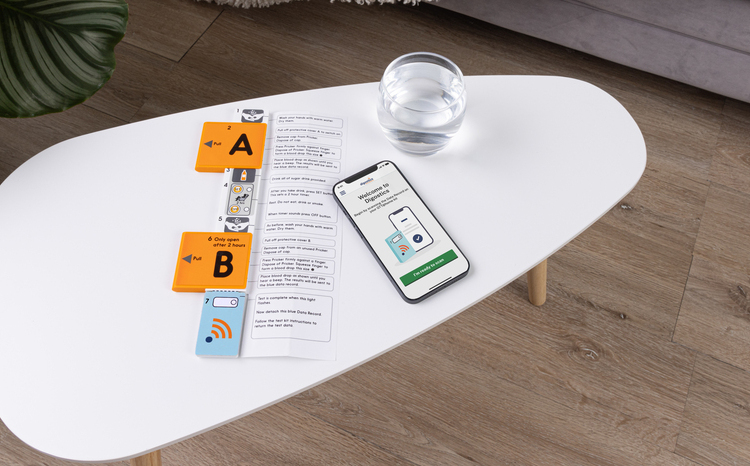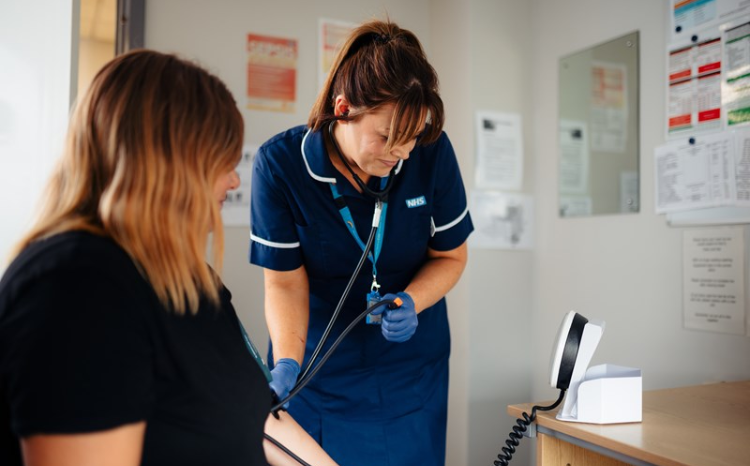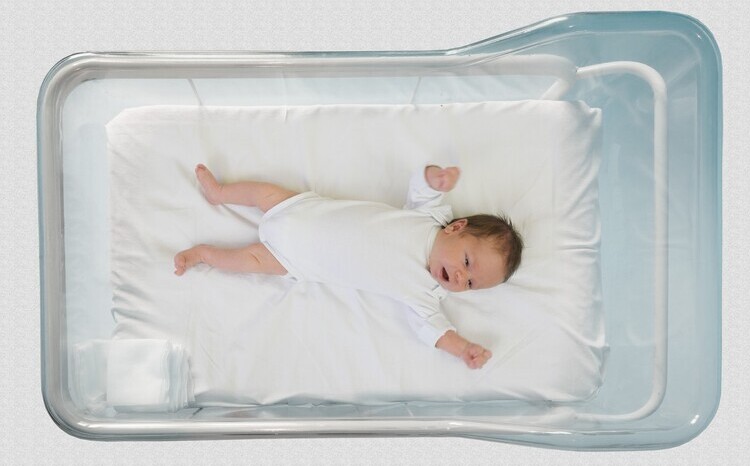NHS trust offers remote testing kits for gestational diabetes
- 9 December 2024

- The GTT@home test is designed to improve access to gestational diabetes mellitus testing for at-risk expectant mothers
- The kit contains a finger prick test and electronic device that enables women to record their results at home and share them with care teams remotely
- Initial set-up of the scheme at Dartford and Gravesham NHS began in July 2024 and full adoption was achieved in November 2024
Dartford and Gravesham NHS Trust is offering at-home testing kits to women at risk of gestational diabetes mellitus during pregnancy with the aim of reducing barriers to maternity care.
The GTT@home test, developed by digital diagnostics and diabetes home testing provider Digostics, is an oral glucose tolerance test that can be performed remotely by applying a blood sample to a test strip housed within a small electronic device.Midwife training and initial set-up of the scheme at Dartford and Gravesham began in July 2024 and full adoption of at-home testing across the trust was achieved in November 2024.
Traditional OGG testing requires expectant mothers to travel to a clinic early in the morning and undergo two blood draws spaced two hours apart while fasted, whereas the GTT@home kit is delivered to women’s homes.
Sadie Hafford, diabetes specialist midwife at Dartford and Gravesham, said: “Reducing barriers to care is key to improving health outcomes.
“GTT@home allows us to reach women who may have struggled to attend clinic-based tests, making screening more inclusive and effective.
“This innovation marks a significant step forward in reducing healthcare disparities within our community.”
After taking two blood samples and applying them to the test strip, women can upload test data via a smartphone app and share it with a midwifery team for review.
The electronic device that houses the test strip contains sensors and provides visual and audio cues to help ensure it is carried out correctly, with support materials, such as video guides, FAQs and live online or telephone assistance available.
Carla Ancillotti, chief technology officer at Digostics, said: “Technology has the power to bridge gaps in healthcare access and create more equitable systems.
“With GTT@home, features like the NFC functionality that instantly transmits data to care teams ensure timely and accurate diagnoses, reducing disparities in care delivery.”
Immediate analysis of samples provided by the GTT@home kit reduces the risk of sample degradation that can affect in-clinic tests, improving reliability.
It is hoped the kit will help address challenges in maternal health outcomes as outlined in NHS England’s Core20PLUS5 framework, which focuses on reducing healthcare inequalities for the most deprived populations and underserved groups.
Valerie Elderkin, interim head of midwifery at Dartford and Gravesham, said: “Our mission is to make use of digital health innovation to make it easier for everyone to get the care they need, especially those who are already disadvantaged when it comes to accessing healthcare.
“By adopting home-based diabetes screening, we’re addressing health inequalities and demonstrating our commitment to accessible and inclusive care.”
University Hospital Southampton NHS Foundation Trust began pilots of GTT@home in April 2023 and in February 2024 the trust announced that the remote testing kits had been successfully introduced.
Meanwhile, researchers at Loughborough University have developed an AI tool designed to enhance safety in maternity care by identifying human factors that could impact outcomes.
Findings from analysis of 188 real maternity incident reports, which the tool was trained on, were published in the International Journal of Population Data Science in November 2024.




